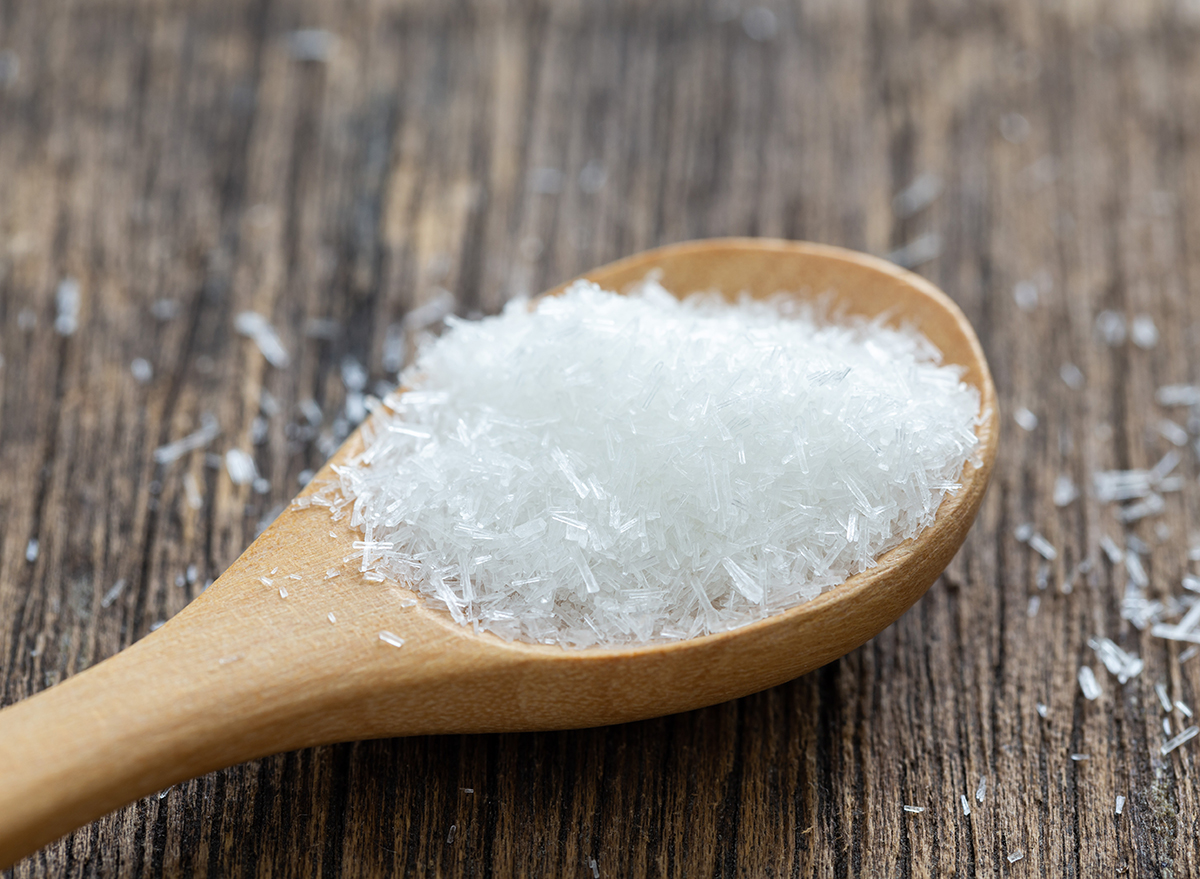Is MSG Actually Bad For You?

It’s not exactly news that MSG, or monosodium glutamate, has a bad rap. Often pegged as the culprit of not-so-nice side effects like headaches and nausea, the additive that is said to basically increase your desire to keep eating is so demonized that some restaurants even post “no MSG” signs on their windows and menus. But is the ingredient actually as bad as people think it is?
We asked a nutritionist to explain what exactly MSG is, why it’s so controversial, and whether there’s science to confirm its adverse effects. We’re settling the ‘is MSG bad for you’ debate once and for all.
What is MSG?
“According to the FDA, MSG is a derivative of the amino acid glutamate, also known as glutamic acid,” explains Maya Feller, MS, RD, CDN, a Brooklyn-based registered dietitian nutritionist and founder of Maya Feller Nutrition. Our bodies produce glutamate, which also occurs naturally in foods like tomatoes and some cheeses. “The additive MSG is made via the fermentation of starches,” she says.
MSG functions as a flavor enhancer that helps bring out the savory, umami taste of foods like mushrooms, cooked beef, and miso. From a chemical perspective, glutamate that is produced endogenously (meaning, by the body), glutamate that is naturally present in foods, and glutamate made by fermentation to create the additive MSG are no different from one another, says Feller. The body metabolizes each source of glutamate the same way.
So why is MSG so controversial?
There are a few reasons. It started in 1968 when a paper coined symptoms thought to be associated with MSG “Chinese restaurant syndrome.” The theory arose from the belief that Chinese-American restaurants commonly added MSG to their food, and American diners often reported experiencing unpleasant symptoms after eating Chinese food. One year later, a 1969 study added fuel to the controversy when it found that mice injected with large doses of MSG ended up with brain lesions, obesity, and female sterility. Yet the megadoses administered in the study contained far more MSG than any human could ingest. Also of note: “Animal studies cannot prove causation,” Feller reminds us.
Still, the MSG debates did not stop there. “In the 1990s, the FDA had an independent scientific group examine the safety of MSG,” says Feller. “The group found that for people who are sensitive to MSG, as well as for those that consumed more than three grams of MSG on an empty stomach, side effects such as palpitations, headaches, flushing, tingling, and numbness may occur.”
The catch? Not all of us are MSG-sensitive, and a typical serving of MSG in food is only about .5 grams. As a result, moderate consumption of the food additive is not thought to be associated with long-term health risks, and the substance continues to be categorized by the FDA as GRAS, or generally recognized as safe.
What foods contain MSG?
Real talk: Chinese-American food is unfairly targeted as the main source of MSG in our diet. In reality, tons of foods actually contain the flavor enhancer. Love the savory-salty tang of Doritos? You can thank MSG for that. Pringles contain the additive, too. And while manufacturers are required to report whether they use MSG in their ingredient decks, restaurants are not. In fact, plenty of top chefs are huge proponents of MSG, which they credit for upping the umami flavor of dishes.
Should I avoid MSG?
If you suspect that you’re sensitive to MSG—meaning you regularly experience side effects such as headaches or dizziness after eating foods that contain the ingredient—by all means, steer clear of the stuff. If you simply avoid MSG because it’s been deemed “bad,” there’s no real reason to ban it from your diet. Just remember: MSG tends to be added to foods that we should be limiting anyway, like greasy takeout, heavy restaurant food, and packaged processed snacks. Curb your consumption of these foods, and your MSG intake will decrease, too. Your health (and potentially those headaches) will thank you.








